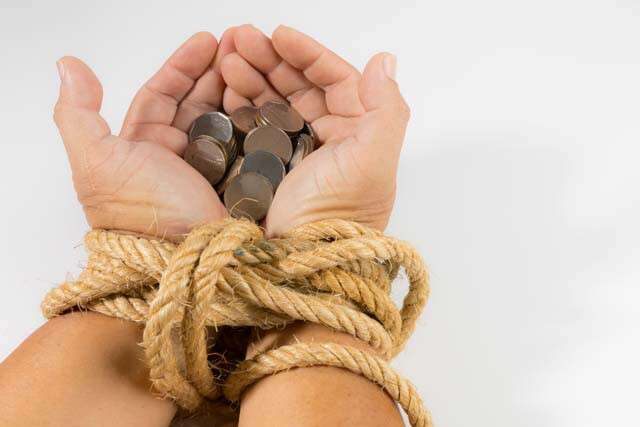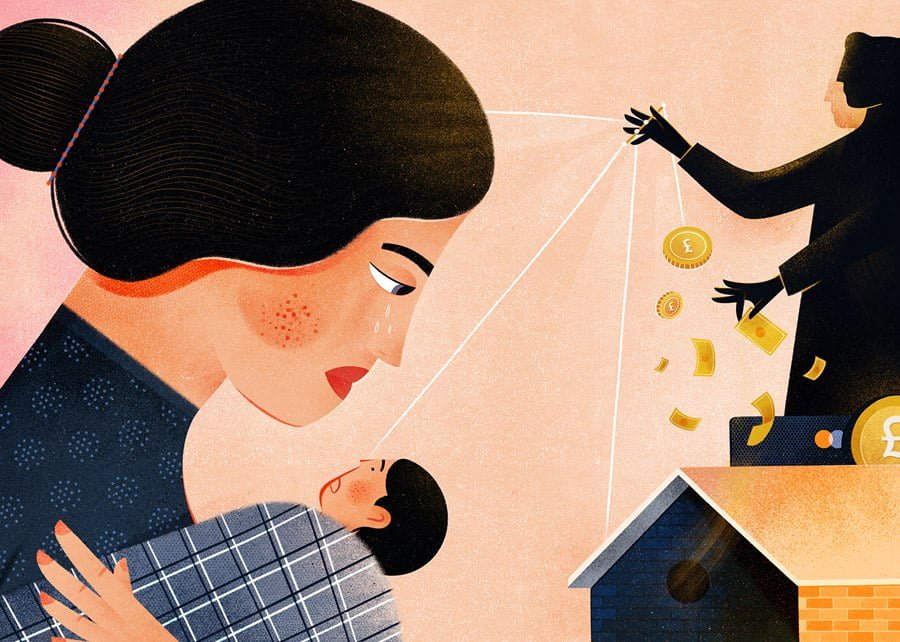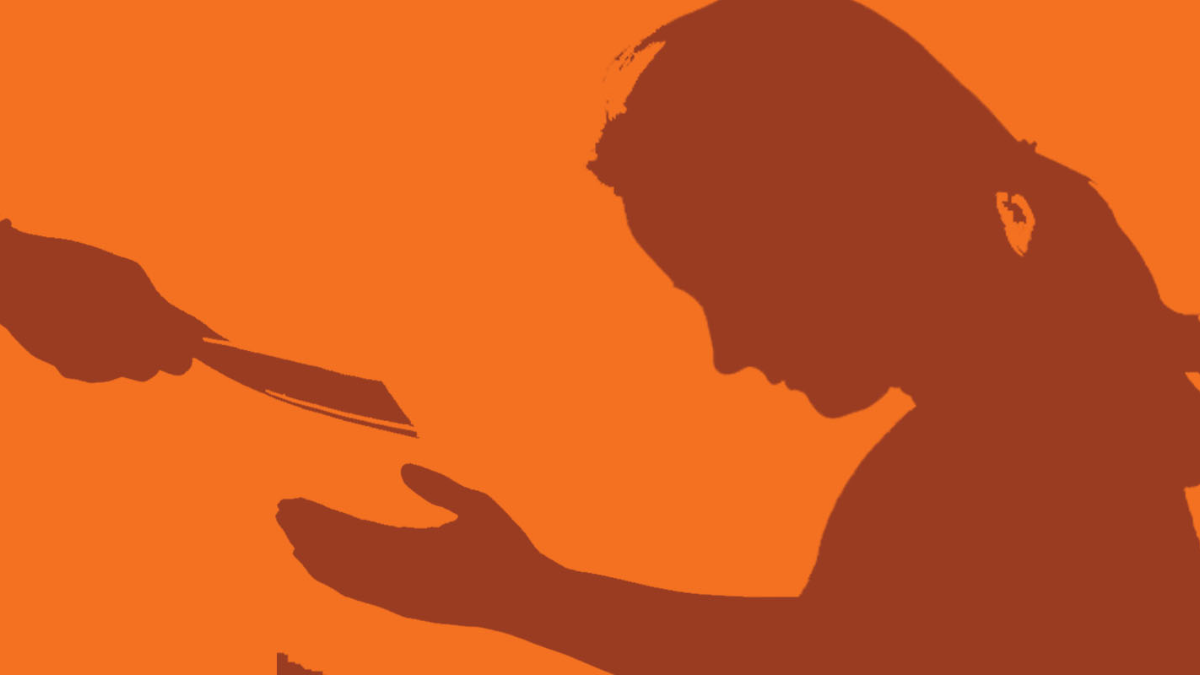That disputes over property and wealth in South Asian families have been a running gag in our community since a long time now. Yet wealth and property also act as media for patriarchs to assert control over women and children in the household through economic abuse. This insidious dimension of financial control often remains a hush-hush matter.
Women and marginalised people who have suffered through it tend to not speak up about it for fear of retaliation from the male members of the household, or for fear of sullying their families’ reputations by leveling allegations of financial abuse against them. The fact, however, remains: economic abuse is notoriously pervasive in Indian households, and manifests in several different ways.
Economic abuse is a feminist issue
Feminist research offers important insight into the ways in which lack of access to economic resources is detrimental to women’s movement for liberation. First, it severely hinders women’s abilities to flee abuse and violence in their households. Second, money, jewelry and property are wielded by men in households as tools to assert control over, and ultimately inhibit, the autonomy of women and children in the family, and to discredit their roles as decision makers in the household. Third, economic abuse in many cases is linked with domestic violence. In other words, domestic abusers have a history of asserting financial control over their spouses as well.

Several forms of economic abuse have been noted as commonly taking place in Indian households. Women’s personal jewelry, for instance, acquired during marriage or passed down by their own families, become a hotspot during times of economic crises. Male family members tend to stealthily pawn off the jewelry without informing the women; some cases have been reported where men resorted to theft as well.
Women’s possessions are thus invariably viewed as expendable; there is an unsaid belief that women must be content with sacrificing their belongings during times of struggle. Families further tend to harbor the belief that marriage means men can hold exclusive control over handling their wives’ belongings.
How is economic abuse perpetuated?
Important studies in the realm of analysing economic abuse through a gendered lens reveal how monitoring expenditure and exercising rigid control over existing economic resources was one of the most common manifestations of abuse in South Asian women’s day to day lives. Men would often hold access to their wives’ bank accounts, and transfer money to their own account without informing them.
Women are denied access to credit/debit cards, and there have been cases where male members of their families tend to withhold cards and cheque books from them.
In many cases, the wives would earn money through self-employment or freelancing opportunities, but be poorly informed regarding the handling of bank accounts. As such, they would often be unaware that their earned money was being funneled into their husbands’ accounts. Women are denied access to credit/debit cards, and there have been cases where male members of their families tend to withhold cards and cheque books from them.

Another concerning way in which abuse occurs is by taking loans in the names of women family members. A considerable proportion of South Asian women are isolated in their households, and become the subjects of verbal harassment and abuse at the behest of bank employees or friends from whom their male relatives have taken loans.
A considerable proportion of South Asian women are isolated in their households, and become the subjects of verbal harassment and abuse at the behest of bank employees or friends from whom their male relatives have taken loans.
Several women recount narratives of having misogynistic slurs thrown at them and of bearing the brunt of the anger of moneylenders even as their husbands switch off their phones or hide from the lenders. The household thus becomes a largely unsafe place for women, who are the most vulnerable to having to deal with the repercussions of their male family members’ poor economic planning.
Financial control inhibits women’s liberation
Husbands often ridicule their wives for not contributing to household finances, thereby neglecting their unpaid labor expended in managing the household. For male members of the family, the lack of contribution of women to finances is sufficient grounds for their mistreatment and abuse.
In many cases, women have complained of their husbands wasting their money on liquor, or gambling, or other such avenues without their knowledge, while still being berated for spending and demanding too much. In this way, men tend to gaslight their wives by hyperbolising their expenditure and painting them as spendthrift and financially inept.

Forms of extreme financial control further extend to queer people as well. For several closeted queer people, there are fears of being disowned or ostracised from the family that would occur if they were to come out. Parents threaten to cut off college fees to imbibe discipline within their children and police their attire and the people they hang out with. Worse, queer people are often forced into arranged marriages, and a refusal to take part in the same would often be met with estrangement from their families.
Money and patriarchal control
Money acts as an operator of force and violence in patriarchal households. Although the dynamics of economic abuse are more subtle and intricate, they nonetheless materially impact the lives of women. Without access to economic resources, for example, women find it difficult to seek rehabilitation after fleeing violent households.
Even in cases of divorce, men tend to drag their former spouses through excruciatingly long judicial processes in an effort to delay paying alimony to their partners, or to discourage them into changing the terms of the divorce. Further, the nature of economic abuse is powerful enough that it can inhibit women’s physical movement.

Public transit, such as Metro, is often unaffordable for, or inaccessible to, women. Men tend to forcefully prevent women from seeking jobs that require them to leave the house. Economic abuse thus has real consequences on the lives of women, yet little scholarship exists on examining the pervasive existence of the same in our families.
In India, small measures such as offering free public transportation, or improving the widespread network of self-help groups that finance small loans to its members at low rates of interest, have helped improve the lives of several women.
A growing body of research has begun to outline strategies for financially empowering women. In India, small measures such as offering free public transportation, or improving the widespread network of self-help groups that finance small loans to its members at low rates of interest, have helped improve the lives of several women.
Regardless, such measures remain isolated to only a few parts of the country. There is a need to revamp the existing framework for financially empowering women in the areas of accessibility and awareness. There is also a need for political organisers and feminist scholars to bring to light the harsh realities of economic abuse, and the ways in which capitalist structures enable and aid the isolation and exclusion women face. A true championing of the cause for women’s liberation is perhaps incomplete without seeking women’s freedom from the stifling systems of capitalism and financial control.
About the author(s)
Mayank (he/him) is an 18-year-old student hailing from Delhi. He is particularly interested in offering cultural and literary critique through the lens of feminist and queer studies. In his free time, Mayank enjoys reading theory and is known to appreciate pictures of pet cats.






